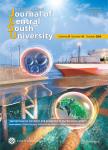A variable weight approach for evidential reasoning
A variable weight approach for evidential reasoning作者机构:College of Information System and Management National University of Defense Technology Changsha 410073 China Department of Mathematics University of Birmingham Birmingham B 152TT UK
出 版 物:《Journal of Central South University》 (中南大学学报(英文版))
年 卷 期:2013年第20卷第8期
页 面:2202-2211页
核心收录:
学科分类:12[管理学] 1201[管理学-管理科学与工程(可授管理学、工学学位)] 081104[工学-模式识别与智能系统] 08[工学] 0835[工学-软件工程] 0811[工学-控制科学与工程] 0812[工学-计算机科学与技术(可授工学、理学学位)]
基 金:Foundation item: Projects(70901074 71001104 71201168) supported by the National Natural Science Foundation of China
主 题:probability deficiency evidential reasoning (ER) inadequate information variable weight consensus
摘 要:A variable weight approach was proposed to handle the probability deficiency problem in the evidential reasoning (ER) approach. The probability deficiency problem indicated that the inadequate information in the assessment result should be less than that in the input. However, it was proved that under certain circumstances, the ER approach could not solve the probability deficiency problem. The variable weight approach was based on two assumptions: 1) the greater weight should be given to the rule with more adequate information; 2) the greater weight should be given to the rules with less disparate information. Assessment results of two notional case studies show that 1) the probability deficiency problem is solved using the proposed variable weight approach, and 2) the information with less inadequacy and more disparity is provided for the decision makers to help reach a consensus.



